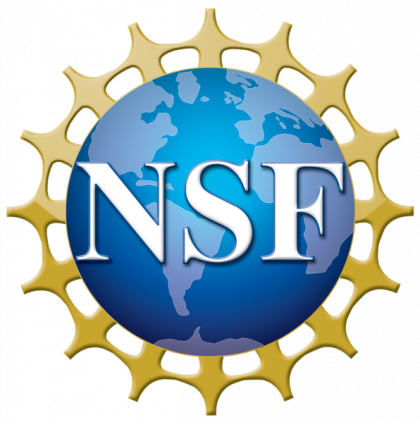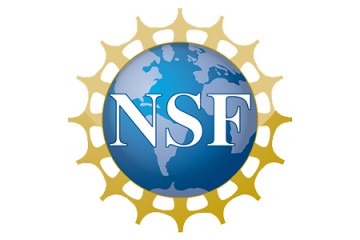Johns Hopkins University will serve as the home of 20 NSF Graduate Research Fellows—outstanding graduate students in science, technology, engineering, or math fields who have been recognized by the National Science Foundation.

The NSF Graduate Research Fellows program is the oldest graduate fellowship of its kind. Fellows receive three years of financial support in the form of an annual stipend of $34,000 and a $12,000 cost of education allowance for tuition and fees paid to the institution. They have opportunities for international research and professional development, and have the freedom to conduct their own research. Overall, the NSF selected 2,076 Graduate Research Fellows this year.
The 2020 NSF Graduate Research Fellows who will conduct their research at Johns Hopkins are:
Haley Abramson is a PhD student in the Department of Biomedical Engineering. She graduated with a BS in computer science and molecular biology from the Massachusetts Institute of Technology in 2019.
Tiffany Chu has developed a platform to quantify cell proliferation within two- and three-dimensional environments as a student in JHU's biomedical engineering program. Her NSF fellowship will build on that work to solve a key roadblock to current cell invasion studies.
Julia Costacurta is a senior majoring in biomedical engineering, mathematics, applied mathematics and statistics. Her research, conducted in the Neuromedical Control Systems Lab of the Johns Hopkins Department of Biomedical Engineering, has focused on improving sensory feedback for prosthesis users.
Hannah Farkas has worked as a research assistant at the Federal Reserve Board since graduating from Johns Hopkins University with a double major in environmental change and sustainability and economics in 2017. She plans to pursue a PhD in environmental economics.
Amy Fernandez graduated from West Virginia University in 2015 with a degree in biology. A second-year PhD student in molecular biophysics, she works in James Berger's lab studying how the molecular machines that control bacterial DNA replication communicate with each other.
Dylan Hirsch graduated with a degree in biomedical engineering in 2018. Since then, he has worked on immune phenotyping data from patients with rare immune diseases at the National Institute of Health. He plans to develop methods to improve modeling and simulation of biomolecular interactions and circuits.
Casie Kubota is a graduate student in the School of Medicine studying biochemistry and cellular and molecular biology. She plans to establish a research lab for students with a passion for science and respect for community.
Kathy Le is a first-generation college student studying biophysics. She plans to pursue a PhD in biophysics, after which she will devote her research to the lesser-characterized biophysical aspects of stem cell processes to manipulate their behavior for biomedical applications.
Quinn Mitchell works in the Hormozi Laboratory, collaborating with researchers from the KTH Royal Institute of Technology launching simulations on supercomputer clusters and analyzing the resulting data. In his PhD program, he will investigate elastoviscoplastic flow through porous media.
Brittni Moore is a 2016 graduate of Pepperdine University. During her PhD program, Moore plans to investigate the biochemical and biophysical properties of photoreceptors in the bladder.
Benjamin Pedigo is a second-year PhD student in the Department of Biomedical Engineering and a co-developer of GraSPy, an open-source package for statistical analysis. His work focuses on using statistical and computational techniques to help understand nanoscale connectomes.
Eli Pivo has built and designed electrical power and electrical control systems for robots in order to provide analysis of power electronic inverters. A research technologist at the Whiting School of Engineering, he plans to develop control methods that decouple the frequency regulation of the electric power grid from fossil fuel energy sources.
Juan Sebastian Rubio is a first-year PhD student in the Department of Mechanical Engineering. Currently, working in the Fluid Transport Lab under Rui Ni, he performs experiments to understand multiphase flows subjected to high-speed, strong turbulence, and large mass loading. His aim is to develop an ultra-high-speed diagnostic system with both engineering and science applications.
Gabriela Satie Sato Polito is a graduate from the Universidade de São Paulo, Brazil. Now an astronomy graduate student at JHU, she has worked to quantify the information content of high-order functions in galaxy surveys.
Danielle Smith is a PhD student in the Department of Biological Chemistry at JHU.
Sydney Timmerman has received the Dean's Undergraduate Research Award for her work on fragile topological phases. She has also taken part in the Research Experiences for Undergraduates program at Texas A&M on the mathematics of topological quantum computing and held an internship at the Perimeter Institute on entanglement entropy in large-N gauge theory.
Derek Van Dyke is a second-year PhD candidate in the Department of Chemical and Biomedical Engineering, working in the Translational Tissue Engineering Center. His research combines cutting-edge technologies from structural biophysics, molecular engineering, and translational immunology to engineer proteins to be used as targeted therapeutics.
Katherine Xiang worked in the physics and astronomy lab of Daniel Reich to study contractile forces exerted by cells on their substrates. She is also working with David Nataf and Nadia Zakamska to discover buckling barred galaxies. Katherine has also worked with Elena Koslover at the University of California, San Diego to study active transport in the cell endoplasmic reticulum.
Jerry Yan has been a part of Hai-Quan Mao's lab for four years, specializing in nanotechnology and designing biomaterials for regenerative medicine and therapy delivery. Yan plans on completing a PhD in biomedical engineering before transitioning into R&D roles.
Brenda Yang is a first-year PhD student studying biomedical engineering. A member of the Translational Tissue Engineering Center, she investigates the role of the microbiome in response to biomaterials and wound healing.
Posted in University News
Tagged fellowships, nsf








